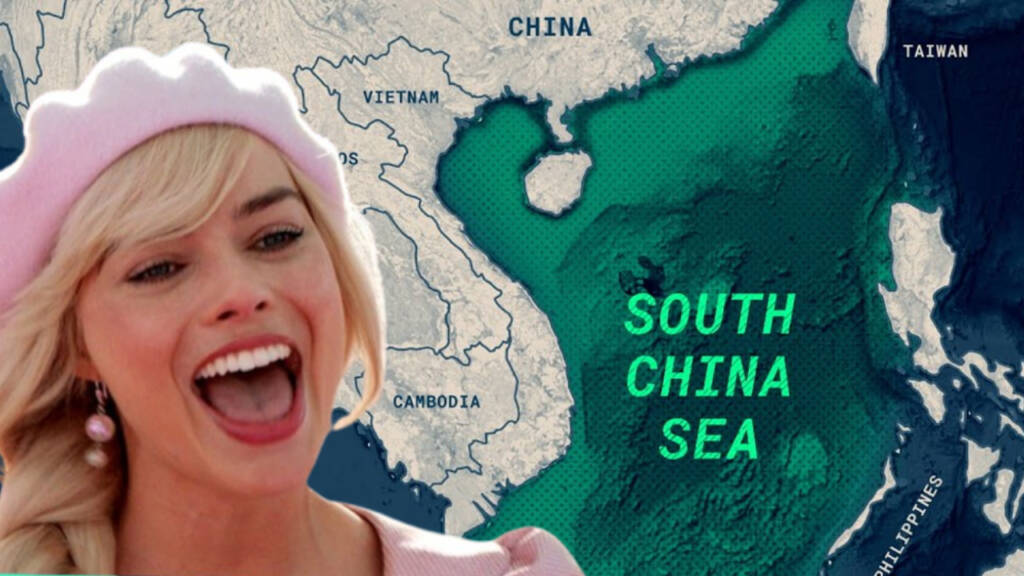In an ongoing saga of Hollywood’s eagerness to please China, Margot Robbie’s latest film, “Barbie,” has ignited controversy and faced a scorching cancellation in South East Asia. This incident highlights the intricate dynamics between Hollywood studios, Chinese box office revenue, and the delicate balancing act required to maintain global appeal.
Hollywood’s Quest to Please China
Hollywood has long been captivated by the vast Chinese film market, which boasts immense potential for box office success. With over a billion potential viewers, China’s influence on global cinema must be addressed.
However, gaining access to this lucrative market comes with a price – concessions to China’s political sensitivities. Studio executives are keenly aware that a misstep or a perceived snub could lead to their films being blocked or heavily censored in the country.
The incident involving John Cena is a stark reminder of Hollywood’s delicate dance with China. Cena, a well-known actor, and professional wrestler, publicly apologized after referring to Taiwan as a country during a promotional interview for his film “Fast & Furious 9.”
The swift backlash and potential repercussions in China prompted Cena to recant his statement and apologize profusely, further exemplifying China’s influence over Hollywood’s biggest stars.
“Barbie” and the Disputed Territories
Margot Robbie’s upcoming film, “Barbie,” is embroiled in a similar controversy. The movie has drawn ire from South East Asian audiences for portraying disputed territories, such as the South China Sea islands, as part of China. This depiction not only disregards the complex geopolitical reality of the region but also undermines the concerns and historical claims of neighboring countries.
Backlash and Possible Repercussions
The decision to portray disputed territories in such a manner has sparked widespread anger and disappointment among audiences in South East Asia. Viewers feel that Hollywood’s capitulation to Chinese demands has undermined their countries’ sovereignty and territorial integrity. Calls for boycotts and cancellations of the film’s release have gained momentum, leaving distributors and studios in a precarious position. Nations such as Vietnam have already banned the movie and the Philippians are also considering the same.
The Potential Impact on “Barbie”
Canceling a film’s release in South East Asia would undoubtedly have significant financial implications. With a substantial portion of potential ticket sales jeopardized, studios may face considerable losses. Moreover, the negative public sentiment generated by this controversy may tarnish the film’s reputation and its lead actress, Margot Robbie.
The ongoing struggle between Hollywood’s quest for Chinese box office success and the desire to respect diverse perspectives highlights a more significant issue. Filmmakers and actors must distinguish between commercial interests and authentic storytelling.
Respect for cultural nuances, historical contexts, and geopolitical sensitivities should guide creative decisions, ensuring that narratives are inclusive and accurate.
Margot Robbie’s film, “Barbie,” is controversial due to its portrayal of disputed territories as part of China. This incident underscores Hollywood’s enduring struggle to please the Chinese market while respecting diverse perspectives and narratives.
Read More: How Hollywood is promoting ‘Racism of the Worst Kind’ against African Americans
The cancellation of the film’s release in South East Asia and the potential financial repercussions demonstrate the high stakes involved. Moving forward, Hollywood must prioritize authenticity, respect, and cultural sensitivity in its storytelling instead of prioritizing its commercial interests.
Only then can Hollywood hope to transcend the challenges posed by China’s influence and truly embrace a global cinema that respects and appeals to audiences from all corners of the world.
